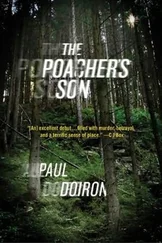Paul Doiron - Massacre Pond
Здесь есть возможность читать онлайн «Paul Doiron - Massacre Pond» весь текст электронной книги совершенно бесплатно (целиком полную версию без сокращений). В некоторых случаях можно слушать аудио, скачать через торрент в формате fb2 и присутствует краткое содержание. Год выпуска: 2013, ISBN: 2013, Издательство: Minotaur Books, Жанр: Криминальный детектив, на английском языке. Описание произведения, (предисловие) а так же отзывы посетителей доступны на портале библиотеки ЛибКат.
- Название:Massacre Pond
- Автор:
- Издательство:Minotaur Books
- Жанр:
- Год:2013
- ISBN:9781250033932
- Рейтинг книги:4 / 5. Голосов: 1
-
Избранное:Добавить в избранное
- Отзывы:
-
Ваша оценка:
- 80
- 1
- 2
- 3
- 4
- 5
Massacre Pond: краткое содержание, описание и аннотация
Предлагаем к чтению аннотацию, описание, краткое содержание или предисловие (зависит от того, что написал сам автор книги «Massacre Pond»). Если вы не нашли необходимую информацию о книге — напишите в комментариях, мы постараемся отыскать её.
Massacre Pond — читать онлайн бесплатно полную книгу (весь текст) целиком
Ниже представлен текст книги, разбитый по страницам. Система сохранения места последней прочитанной страницы, позволяет с удобством читать онлайн бесплатно книгу «Massacre Pond», без необходимости каждый раз заново искать на чём Вы остановились. Поставьте закладку, и сможете в любой момент перейти на страницу, на которой закончили чтение.
Интервал:
Закладка:
“Something like that.”
“I’ll believe it when I see it.”
I turned my head back to look at the road. “Where do you want me to drop you?”
“Skillens’ Lumber,” she said.
For some reason, I’d had a suspicion we were headed to her fiance’s place of business.
The Skillen family had been original settlers in northern Washington County, during a time when virgin forests blanketed the land as far as the eye could see and Passamaquoddy Indians, dwelling in seasonal camps along the St. Croix River, speared salmon as they leaped free of the tumbling falls. Amos and Harlan Skillen opened their first small stave mill in 1879 on the East Machias. The brothers cut the pines with axes and crosscut saws, and they filed their blades by lantern light.
Flash forward a century and the Skillen Lumber Company was the seat of a small woodland empire. The family owned forty thousand acres of its own forests in Washington and Hancock counties and bought logs from another hundred contractors to mill at their plant in Wesley. Five generations of Skillens had outfitted their factory with state-of-the-art machinery: debarkers and chippers, circular sawmills equipped with band resaws, planer mills, kilns, and bark processors. Each year, the company planted twenty thousand balsams to harvest as Christmas trees when the saplings reached five feet in height. In the fall, before the first snows, it sent forth dozens of “tippers”-men and women who ranged through the woodlots to snap the tips off fir boughs to weave into holiday wreaths and ship to market in Boston and New York. In a part of the world where the only other industry was commercial fishing-which itself seemed to be suffering the first stages of a fatal decline-the Skillens employed hundreds of people and were seen by all accounts deservedly as benign feudal lords.
Then came the collapse. In his rush to grow the company, Merritt Skillen, the current CEO, had overcut his own lands, just as his outside suppliers discovered it was more profitable to send their logs across the border to Canadian mills. Repeated spruce budworm infestations laid waste to the Skillens’ young Christmas trees. The mechanization that had seemed so wondrous a decade earlier soon led to layoffs. Men who had gone straight from high school in Calais to jobs with six-figure salaries found themselves being handed pink slips on Friday mornings. They woke up in late middle age to discover that their services were no longer needed and, furthermore, that the decades they had spent working the debarker had prepared them for absolutely nothing else in life.
Merritt Skillen began cutting select parcels to the bone and then selling them off for quick cash to keep his line running and his trucks rolling, hoping to save what jobs he could. It was this same stubbled land-acres that had once been the heart of a logging empire-that Elizabeth Morse had snatched up for a song. The shell-shocked Skillens had no idea what hit them the morning Betty Morse called a press conference to announce that she had acquired not just most of their land but also that of their neighbors and planned to donate it all to the U.S. Department of the Interior to create what she hoped would be called Moosehorn National Park.
I had never met Merritt Skillen, but I’d seen him interviewed on television and had once caught sight of him across the room at the Crawford Lake Club. In the dim light of the restaurant, with his face illuminated from below by a flickering candle, he looked careworn and haunted. He was still handsome, with a straight nose, a forceful jaw, and a crown of silver hair. Somehow, though, the regalness of his bearing seemed to make him an even more tragic character, and I thought of a fallen king out of Shakespeare, wandering, adrift in his former kingdom.
His son, Matt Skillen, I knew better. He was, after all, Stacey’s fiance. Recently, he had become the public face of the company, appearing in television ads to promote Skillen Lumber’s commitment to clean energy and its new line of pinewood homes-the initiative the family hoped would save its business. He was as good-looking as his old man, but with none of the desperate sadness. On TV he came across as magnetic, well-spoken, and genuine: the kind of bright young businessman the entire state of Maine was rooting for these days.
The mill complex was hidden from the road by a castle wall of evergreens. All that was visible was the sign-SKILLEN LUMBER COMPANY: SINCE 1879-and the plume of white smoke feathering up from somewhere in the trees beyond. We drove down the long, wooded lane, wide enough so that two logging trucks could pass each other, one carrying logs in, the other carrying boards out. Even with my squealing engine, I could hear the loud industrial rumbling of machines ahead.
Eventually, we came to a gatehouse, where an old man in bifocals sat on a stool with a book of crossword puzzles. “Afternoon, Warden. What seems to be the trouble?”
In Washington County, no visit from the local game warden was ever assumed to be less than worrisome. “No trouble,” I said.
Stacey leaned across my body to wave. “Hey, Earl,” she said.
The old guard sat up straighter. “Hello, young lady. I didn’t see you in there.”
“We’re just picking up my car.”
“Go ahead, go ahead. I don’t know if the boys are done detailing it, though. I’ll tell Matt you’re here.”
The guard pushed a button, which caused the gate to roll back ahead of us, retreating on squeaky wheels back inside the high wire fence that surrounded the mill. We pulled into the enormous parking lot, which was notable for two things: the relative scarcity of vehicles and the weeds pushing through the cracked asphalt. Mountains of unprocessed logs were piled ahead of us, like wooden bulwarks meant to thwart an attacking army. Behind them rose the buildings of the mill-tall and largely windowless gray structures that seemed large enough to contain a fleet of 747s. The air smelled acridly of burning wood. A red light blinked atop the fuming smokestack that towered over everything in that vaguely menacing way industrial structures do.
I turned the wheel to avoid a forklift carrying an impossibly high stack of pine boards toward the section of the complex where the processed lumber was waiting to be carried away. The mill might have been a shadow of its former self, but there was considerable activity: forklifts darting back and forth, men entering and exiting the buildings in hard hats, a crane lifting logs from the back of an eighteen-wheeler to drop onto the pile. The place was as busy as an anthill.
“Is that my car?” Stacey said. “I wouldn’t even recognize it.”
I followed her line of vision to a Subaru Outback that looked newly washed and waxed. The metal surfaces had been polished to a mirrorlike brightness. It was parked at the edge of the lot, away from the hustle and bustle.
I parked beside the wagon and she climbed out. She gazed toward the open bay of one of the buildings expectantly. There was an enormous smile on her face.
“I guess I’ll get going, then,” I said. I was eager to depart before Matt Skillen appeared on the scene.
“Thanks for the ride.” She bent over again to push her head through the window. “You really do need to call my dad. It would make his day to hear from you.” She straightened up again. “Here comes Matt.”
Now I had no choice but to stay. I watched a slender young man advance across the parking lot. He had an easy gait, the way natural athletes do, and to look at him, you could imagine that he’d excelled in college track and field. His hair was black and wavy, and he was wearing a white T-shirt with some sort of red-and-blue logo on it, faded jeans, and fawn-colored work boots.
A small boy, maybe eight years old, dark-skinned, and wearing the same T-shirt, trailed along behind him.
Читать дальшеИнтервал:
Закладка:
Похожие книги на «Massacre Pond»
Представляем Вашему вниманию похожие книги на «Massacre Pond» списком для выбора. Мы отобрали схожую по названию и смыслу литературу в надежде предоставить читателям больше вариантов отыскать новые, интересные, ещё непрочитанные произведения.
Обсуждение, отзывы о книге «Massacre Pond» и просто собственные мнения читателей. Оставьте ваши комментарии, напишите, что Вы думаете о произведении, его смысле или главных героях. Укажите что конкретно понравилось, а что нет, и почему Вы так считаете.












